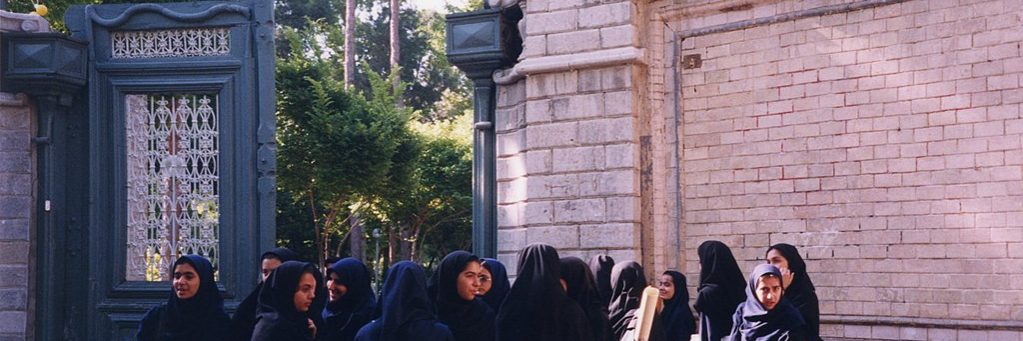More than 1,000 schoolgirls in Iran have been affected by a so-far unexplained illness that many believe to be the result of targeted poisonings. Image source: Jeanne Menj, CC BY 2.0.
More than 1,000 schoolgirls in Iran have been affected by a so-far unexplained illness that many believe to be the result of targeted poisonings.
Since November, girls at more than 30 schools in Iran have experienced symptoms such as dizziness and vomiting which the country’s health minister described as “mild poison” attacks.
Parents, teachers and student unions have called for nationwide protests following months of continued attacks without intervention or explanation from the Iranian government.
Speaking for the first time on the poisonings this past Monday, Iran’s ruler Ali Khamenei condemned the “unforgivable” crime and denied any government involvement in the attacks.
“Authorities should seriously pursue the issue of students’ poisoning. This is an unforgivable crime… the perpetrators of this crime should be severely punished,” Khamenei said.
Iran’s interior minister, Abdolreza Rahmani Fazli, said that “suspicious samples” were found and were being investigated to identify the cause of the illness.
Harsh limits on the freedom of press in Iran make it difficult for reporters to investigate the incidents, but many suspect the girls are being targeted by extremist Islamist groups opposing girls’ education.
The education of women and girls is widespread and generally accepted in Iran, with female literacy having risen from 26% in 1976 to 85% in 2021.
However, many suspect that the attacks are motivated by religious extremism.
This sudden wave of illness began in the midst of anti-government protests following the death of Mahsa Amini, a young Kurdish Iranian woman who died in the custody of Iran’s morality police after allegedly not adhering to the strictly-enforced dress codes.
“The attacks aren’t sophisticated at all,” said Deepa Parent, a human rights journalist reporting for The Guardian. She was told by a doctor that the symptoms displayed by the girls correlated with poisoning from a common pesticide.
The doctor also told Parent that he had observed similar symptoms in the past in people who worked in agricultural or military environments.
“Nobody believes that it is coincidence that it has followed the protests,” said Parent about the suspected attacks. “What you hear from activists and on protest networks is that this is revenge on these girls, and on their families.”
The United Nations human rights office called for a transparent investigation into the suspected attacks, which the Iranian government rejected as unnecessary foreign intervention.
“Iranian authorities have a terrible record of investigating violence against women and girls”, Human Rights Watch said last week.
On Monday, twenty prominent Iranian human rights lawyers published a letter calling upon the UN and independent agencies to investigate the poison attacks.
Hadi Ghaemi, executive director of the Center for Human Rights in Iran (CHRI), said international intervention was needed.
“Due to the Iranian government’s incompetence—or unwillingness—to stop poison gas attacks against schoolgirls in Iran, international support is urgently needed to protect Iranian children and their right to education.”





